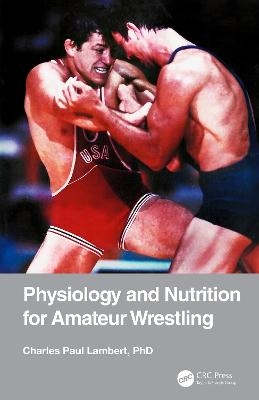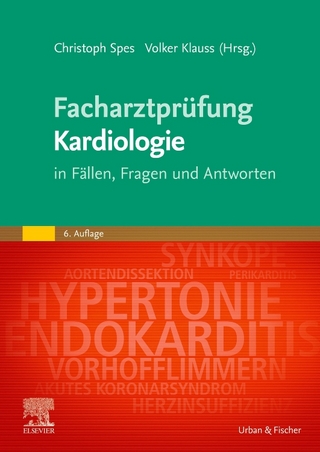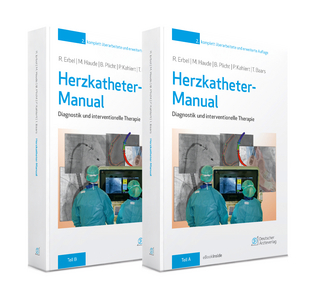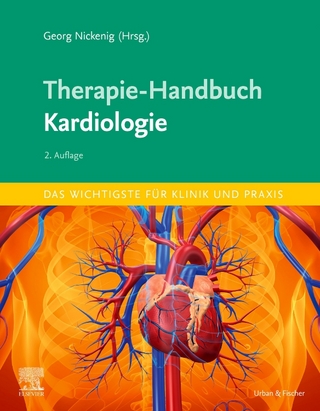
Physiology and Nutrition for Amateur Wrestling
CRC Press (Verlag)
978-0-367-37094-7 (ISBN)
Physiology and Nutrition for Amateur Wrestling is essential reading for amateur wrestlers and their coaches with a desire to learn about physiological training and nutrition for their sport.
Written by Charles Paul Lambert, PhD, a competitive wrestler and academic expert in high-intensity exercise, this book describes the primary physiological systems involved in amateur wrestling. Readers will learn how to substantially optimize performance and discover ways to improve body composition specific to the sport of amateur wrestling.
The book addresses important issues, including relative energy deficiency in sport, debates around weight loss, the specificities of training and nutrition for female wrestlers, as well as strategies on keeping fit in the years after a competitive career.
Features:
Discusses strategies for monitoring overall training load to prevent overtraining and optimize training
Includes optimal nutritional fueling plans for wrestlers written by a Certified Coach with USA Wrestling and compares different dietary approaches to losing weight and fat
Provides optimal rehydration and refueling plans based on situational needs in the post-weigh-in period
Both scientific and practical, Physiology and Nutrition for Amateur Wrestling will appeal to wrestlers, high-school and college coaches, and those working in applied physiology research and exercise science.
Charles Paul Lambert, Ph.D. was born in Toledo, Ohio May 26, 1965. He was brought up in a suburb of Toledo, Sylvania, Ohio where he wrestled, played football, and some baseball in junior high school and high school at Sylvania Southview. Noteworthy of wrestling career was that he achieved 50 takedowns his Senior year and was awarded the Takedown Trophy. Also, in 1981 under the auspices of the AAU he was Second in the State Greco-Roman Tournament where he lost in the finals to Joe Ghezzi 0-6, being underarm spun with a go behind 6 times. Dr. Lambert was 19-6 his Senior year for Sylvania Southview High School, a three year varsity letter winner, and Co-Captain his Senior year. With regard to football, he started at Varsity offensive guard (145 lbs) as a Sophomore, Junior, and Senior and started at inside linebacker his Senior year and was the runner-up or leading tackler his Senior season. He was also Co-Captain of the Football team his Senior year. Upon graduation from Sylvania Southview High-School in 1983, Dr. Lambert entered the University of Toledo and graduated with a 3.55 GPA in Human Performance (now Exercise Science) in 1988. This GPA and research experience and publications with Michael G. Flynn, PhD helped him get a “free ride” to Graduate School at the Human Performance Lab at Ball State University. Dr. Lambert excelled in this fertile academic setting and it was the most rewarding two years of his life achieving a 3.93 GPA (including a year of Biochemistry in the Chemistry Dept.) and learning a great deal about applied physiology research including rehydration after dehydration under Dr. David L. Costill. After graduation in 1990, Dr. Lambert worked in Dr. Ron Maughan’s lab at the University of Aberdeen Medical School, Aberdeen, Scotland for one year. This also was a great experience for Dr. Lambert studying mechanisms of fluid replacement and metabolism during high-intensity exercise. Dr. Lambert then worked with John O. Holloszy, M.D. for one year at the Washington University Medical School. Dr. Lambert completed his PhD at the University of Toledo in 1997 again under the auspices of Dr. Michael G. Flynn. His area of research for his dissertation was Exercise and Immunology. His doctoral GPA was 3.88. After teaching for a year at Eastern Michigan University Dr. Lambert became a Post-Doctoral fellow in the Nutrition, Metabolism, and Exercise lab of William J. Evans, Ph.D. within the Dept. of Geriatrics at the University of Arkansas for Medical Sciences. Dr. Lambert spent eight years primarily performing research at UAMS publishing some 21 papers in those eight years and procuring two National Institutes of Health grants dealing with muscle hypertrophy in the elderly. He was an Assistant Professor when he left UAMS. After UAMS, Dr. Lambert went to Washington University School of Medicine for 2 years bringing 90% of his salary with him in grant money. He was a Research Assistant Professor in the Dept. of Geriatrics and Nutritional Science within Internal Medicine. There Dr. Lambert completed his NIH/National Institute on Aging R21 grant titled: “Effects of Albuterol on Muscle Protein Synthesis”. Dr. Lambert left Washington University and went to the Univ. of Louisville, taught, performed research, and mentored students. After two years Dr. Lambert left U of L to be with his aging father. After a number of years away from academia Dr. Lambert taught for Stautzenberger College for two years. Currently, Dr. Lambert is writing and applying for Tenure Track positions in Exercise Physiology/Science. Dr. Lambert has published ~65 peer reviewed papers and been first author on at least 30 of these. He has acquired two National Institutes of Health Grants, and other various grants. He is a member of the International Network of Wrestling Researchers, a Bronze Certified Coach through USA Wrestling, and was a Mat Official for USA Wrestling for four years. In his spare time, Dr. Lambert is a Powerlifter having Bench Pressed 336.2 lbs in competition at the age of 54 and is currently ranked 9th in the USA in the USPA with a total of 1003 lbs. Recently, Dr. Lambert qualified for the USPA Nationals with a total 1102 lbs and is hoping to qualify for Worlds at this meet.
1. Introduction: Philosophy behind this book: Physiology and Nutrition for Amateur Wrestling 2. Positive Physiological Benefits of Wrestling Part 1. Physiological Basis for Wrestling 3. Skeletal Muscle 4. The Nervous System 5. The Cardiovascular System 6. The Gastrointestinal Tract 7. The Endocrine System 8. Muscle Fibre Types 9. Fuel Selection During a Wrestling Match 10. Energy Systems and Biochemical Causes of Fatigue 11. Physiological Factors that allow for the attainment of “Maximal Power Output” and “Entire Match Wrestling Power Output” 12. Cardiovascular Adaptations to Endurance Exercise Training 13. Training Variables 14. Training Strategies for Wrestling 15. Periodization (Structure of weeks and months of training) 16. Physiological Assessment and Detection of Overtraining Part 2. Nutrition for Amateur Wrestling: Fuelling the Machine 17. Amateur Wrestling Nutrition and Metabolism Primer 18. Water Balance, Electrolyte Balance, and Hydration, Hydration Testing, Body Composition Testing, and Mandated Weight Control 19. The Case against Rapid Weight Loss 20. Optimizing Physique and Body Composition and Determining the Appropriate Weight Category 21. Optimal Nutrition for Maintenance of Body Composition and for Fueling Training during the Season 22. Nutrition for a Single Match, a One Day Tournament, and a Multiple Day Tournament 23. What and how should the Wrestler Eat and Drink Post-Weigh In 24. Dietary Supplement use in Wrestlers 25. Relative Energy Deficiency in Sport 26. Special Considerations for the Female Wrestler 27. Weight Control and Physical Fitness in the Years after the Wrestler's Competitive Career
| Erscheinungsdatum | 31.07.2020 |
|---|---|
| Zusatzinfo | 34 Tables, black and white; 7 Line drawings, black and white; 1 Halftones, black and white |
| Verlagsort | London |
| Sprache | englisch |
| Maße | 156 x 234 mm |
| Gewicht | 453 g |
| Themenwelt | Sachbuch/Ratgeber ► Sport ► Kampfsport / Selbstverteidigung |
| Medizinische Fachgebiete ► Innere Medizin ► Kardiologie / Angiologie | |
| Technik ► Lebensmitteltechnologie | |
| ISBN-10 | 0-367-37094-8 / 0367370948 |
| ISBN-13 | 978-0-367-37094-7 / 9780367370947 |
| Zustand | Neuware |
| Haben Sie eine Frage zum Produkt? |
aus dem Bereich


